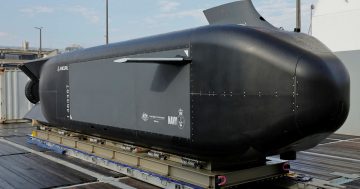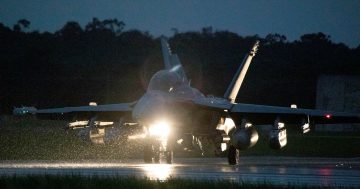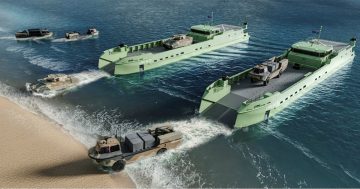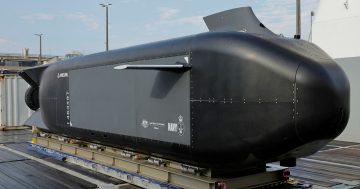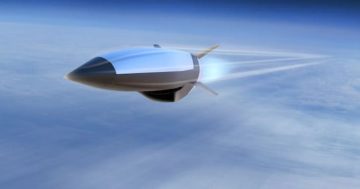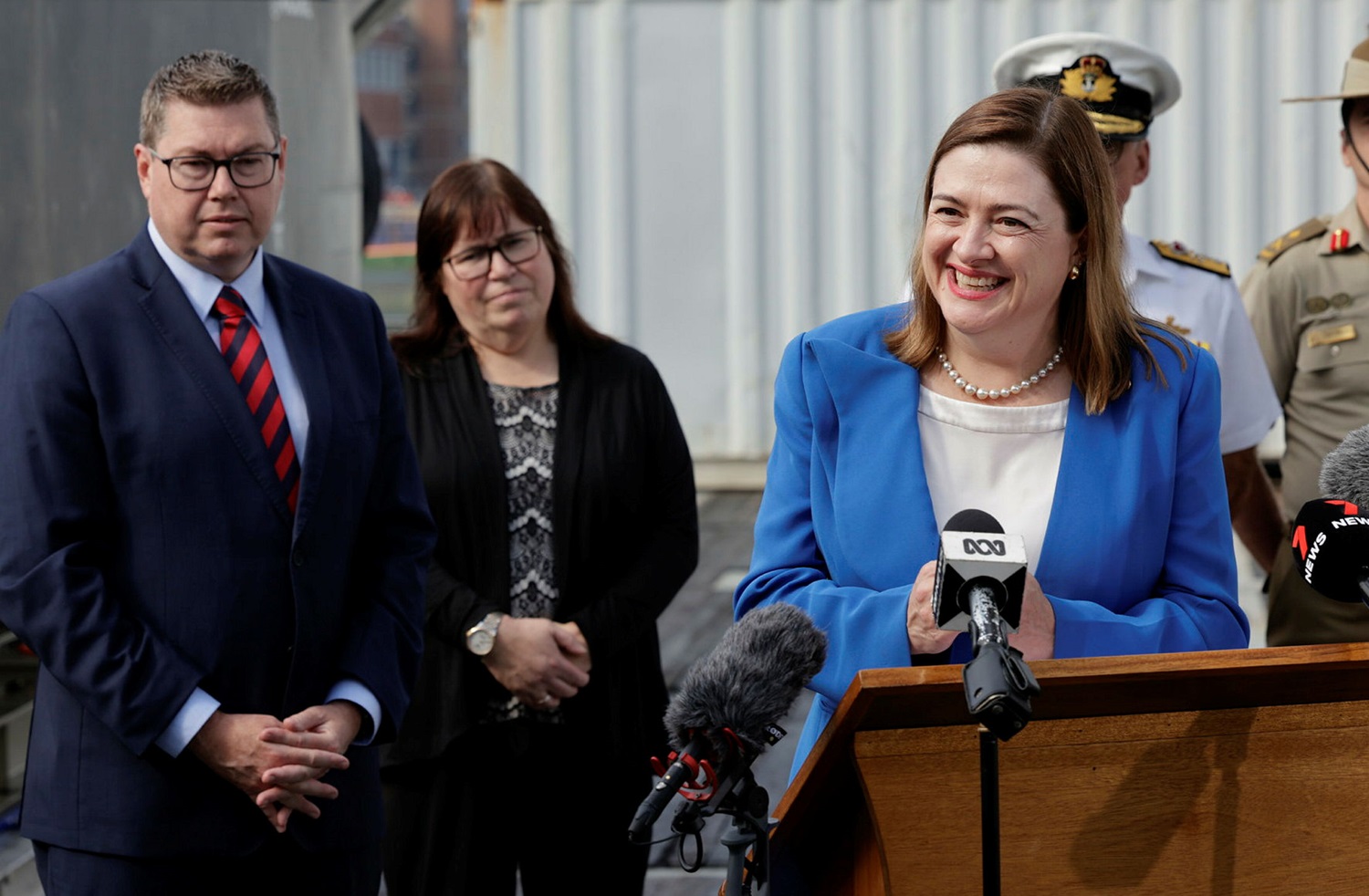
Minister for Defence Industry and Capability Delivery Pat Conroy, former head of ASCA Prof Emily Hilder, and Chief Defence Scientist Professor Tanya Monro at last year’s announcement for the Ghost Shark XLAUV program. Photo: ADF.
Less than two years after being established, Defence’s Advanced Strategic Capabilities Accelerator (ASCA) has been reorganised under a new group and new leadership.
After just a year in the role, Professor Emily Hilder has been replaced as the head of ASCA by Army Brigadier Hugh Meggitt.
The government says Brigadier Meggitt brings expertise across innovation, capability delivery, and industry engagement, including from his role as Director General Special Operations Modernisation at the ADF’s Headquarters Joint Operations Command. He has previously served as a military attache to the US.
As part of the reorganisation, ASCA will be moved from the Defence Science and Technology (DST) under Professor Tanya Munro, to the Vice Chief of Defence Force (VCDF) Group which comes under VCDF Air Marshal Robert Chipman. The government claims this is to ensure investments are directly informed by operational needs and delivering an integrated, focused force as required under the National Defence Strategy.
ASCA was launched in May 2023 under DST to transform the way breakthrough military solutions are delivered by rapidly translating innovative technologies into capabilities, and to accelerate delivery of these capabilities through innovation.
ASCA’s mission is to connect and streamline the defence innovation system by focusing on defined missions, by solving the most relevant and urgent capability problems, and by taking a more flexible and agile approach to procurement.
The organisation has facilitated several innovation challenges and has overseen the awarding of a number of small technology development contracts to Australian companies that have performed well in those challenges.
The government thanked Professor Hilder for the role she played in establishing ASCA, saying the organisation has proven its value in supporting innovation in priority areas including hypersonics, directed energy, trusted autonomy, quantum technology, information warfare and long-range fires, while helping to commercialise technologies and contributing to job creation in the Australian defence industry.
Defence Minister Richard Marles said last year’s Defence Strategic Review (DSR) had made it clear that Australia needed to do more to invest in new and innovative technologies for the ADF.
“That is precisely what the Advanced Strategic Capabilities Accelerator is delivering,” he said.
“Since its establishment, ASCA has worked with Australian industry and our international partners to identify these capabilities, including by working with the US and UK to operationalise AUKUS Pillar II across areas such as undersea warfare and hypersonics.
“This next phase of ASCA’s delivery will ensure Australia can continue to invest in and deliver advanced capabilities that will help keep our nation safe, while supporting local industry, innovation and jobs.”
Minister for Defence Industry and Capability Delivery Pat Conroy said the government had established ASCA to transform Australia’s defence innovation ecosystem so that ideas could be developed into capabilities that gave the ADF an asymmetric advantage.
“ASCA has already made great inroads in accelerating advanced capabilities for our ADF, underscoring the Albanese Government’s commitment to investing in local innovation and a future made in Australia,” he said.
“After a necessary period of establishing itself and learning, ASCA is now moving into its next phase of delivery which will see it more closely aligned with needs of military end users and accelerate cutting-edge capabilities into service.”
But founder and director of think tank Strategic Analysis Australia (SAA) Michael Shoebridge questioned the reasons for the reorganisation, suggesting ASCA was neither delivering nor accelerating “in the sense of actually getting weapons or systems getting into the hands of our military quickly”.
“Instead, it remained primarily focused on engaging with universities and funding dead-end small-scale ‘challenges’ for small companies to show what they could do, with no next step,” he wrote on LinkedIn on 11 February.
“I wish the new Brigadier much luck remembering what his job is meant to be about: rapidly equipping our military with powerful new technology, bought cheaply from Australian companies who can meet our military’s needs.
“If he succeeds, that’ll be one key step in rehabilitating the ADF to be an organisation that justifies an old Defence recruiting ad tagline ‘Smart people. Smart machines’.”


